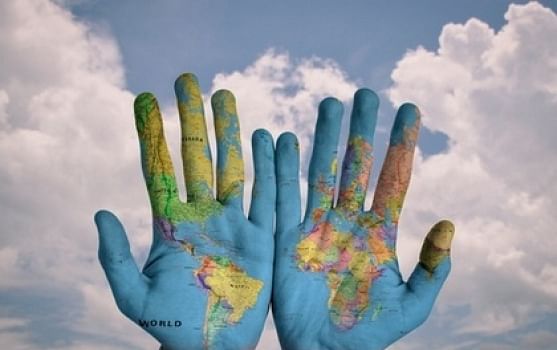Web globalization : is your business doing all it can?

Every year, the Web Globalization Report Card ranks the world’s websites, highlighting the 25 most global sites. In 2018, Wikipedia unseated Google as the best global website, pushing it down to the number two spot. NIVEA, Microsoft and Adobe made up the rest of the top five places, while Facebook, Booking.com, Philips, Hotels.com and Nestlé ranked from sixth to tenth.
While these household names are understandably among the world’s best global websites, it doesn’t mean that smaller companies can’t follow in their footsteps and create their own global sites.
What are the business benefits of web globalization?
In a nutshell, globalizing a website means presenting it to audiences around the world. Doing so brings with it a range of business benefits – mostly ones that can have a positive impact on a company’s bottom line.
Brand awareness, customer engagement and product exposure are three of the most compelling reasons that companies seek to globalize their websites. However, they are far from the only reasons. In the case of Wikipedia, for example, a strong belief in the power of sharing information is a key motivator behind the site’s global exposure.
How to present your website to global audiences
Translation and localization services are the keys to creating a globalized website. Wikipedia, for example, supports around 300 languages, making it accessible to a vast range of users around the globe. That a user-supported company has been able to spread so far around the world demonstrates the value that internet users place on the availability of information in their local language.
As well as language, content has to be presented in the right way to different audiences. From cultural and religious differences to historic considerations, localizing content is a detailed job that requires expert insight from natives of the countries in which websites are due to be shared. Any business that is truly committed to globalization will need to bear this in mind and use the services of a professional localization company in order to kick-start the process. When it comes to producing global content, translation alone is not enough!
To find out more about translating and localizing your website, contact the Tomedes team.
CATEGORIES
STAY INFORMED
Subscribe to receive all the latest updates from Tomedes.
© Copyright 2007-2022 TOMEDES. All Rights Reserved.


Post your Comment